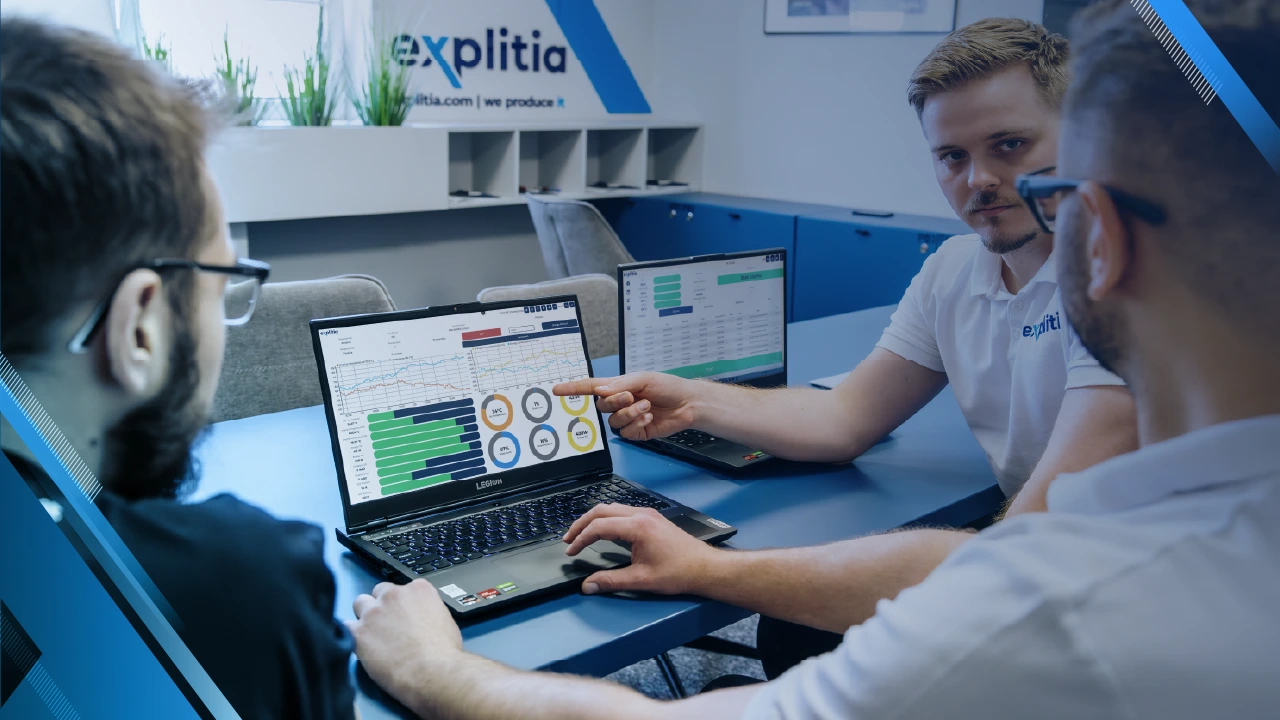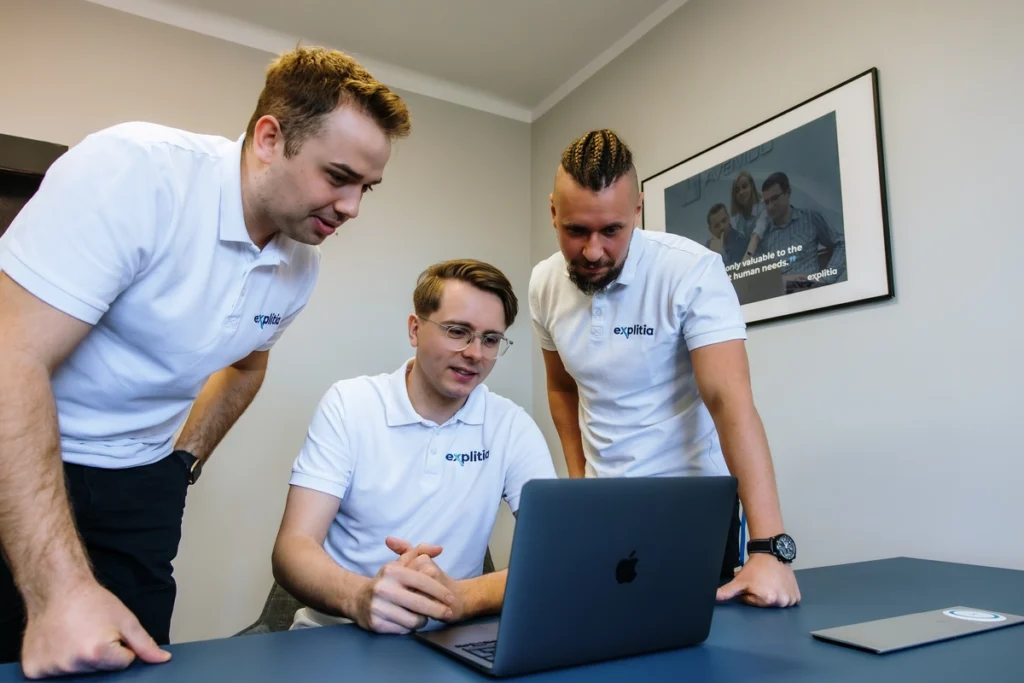Technology consulting in the automotive sector – a case study of successful digital transformation
Implementing an IT system in a large manufacturing company doesn’t start with purchasing software. It starts with questions: What are our processes? What data is needed? What resources and constraints do we have? This is the story of how the IT consulting team at explitia collaborated with one of our clients – a component manufacturer for the automotive sector.

Challenges of the automotive industry on the road to digital transformation
The automotive production plant in question is a large facility employing several hundred people and operating over a dozen long technological lines. Despite a modern machine park, the company faced serious issues with fragmented IT solutions – many systems functioned only locally, tied to individual machines or lines, often supplied with equipment or implemented as pilots by external vendors.
The lack of procedures and IT standardization meant the plant operated without consistent practices – especially regarding user interfaces and production system handling. High employee rotation between workstations resulted in time-consuming onboarding, increased error rates, and confusion as workers had to learn new systems repeatedly. The issue was not mechanical operation but digital tasks: launching orders, processing and documenting production, and reporting data.
Importantly, the operational staff was fully aware of these difficulties – it was the employees themselves who most often pointed out that the multitude of solutions made their daily work harder and disrupted their focus on actual production tasks. As a result, more time was spent navigating between different systems than on activities that truly impact the quality and efficiency of production.

Don’t waste time and money on failed digitization in the automotive sector!
Use technology consulting to make your digital transformation a journey with a successful outcome.
The challenge for IT consulting: ERP isn’t everything
The client approached us with a clear issue: the existing ERP system did not cover many key areas of the plant. This resulted in:
- manual processes,
- paper-based document workflows,
- lack of standardization across production lines.
Additionally, with upcoming contracts, the client had to demonstrate readiness for digital cooperation with major players in the automotive industry. One of the top priorities was also cost reduction – essential for remaining competitive.
IT consulting: workshops and initial diagnosis
We began our collaboration by touring the factory and conducting workshops with key departments: production, quality, maintenance, and IT. The client had already developed preliminary MES requirements documents internally, aiming to support areas the ERP system did not cover sufficiently.
However, during the workshop it became clear that the organization was not yet ready for implementation. Why? The requirements were too general, and there was insufficient information. Many inconsistencies emerged, especially around data sources, production processes, and operational standards. A comprehensive technology audit was needed to create a concrete plan and unified specifications for fair vendor comparison.

Four tangible results of the assessment for automotive sector
As part of the assessment phase, we spent several weeks collecting data and conducting interviews with employees. The process followed a detailed schedule of meetings with representatives from all relevant departments. The outcome was four key deliverables:
- Technical Requirements Document – a full AS-IS documentation of current systems, data sources, processes, and technical/organizational needs.
- Digital Roadmap – an implementation plan divided into independent stages (e.g. reporting, order registration, quality control), with defined milestones.
- Organizational Culture Guidelines – including recommendations for interface standardization, change management, and training.
- Employee Readiness Assessment – evaluating how prepared staff are for upcoming changes.
The process concluded with a summary workshop to compare the documentation with client expectations, make final adjustments, and confirm the strategic direction. This ensured that all future vendor proposals would address the same clearly defined requirements, enabling true like-for-like comparison.
Technology consulting with explitia is not a binding contract
Many clients worry that hiring a technology consulting company means committing to that provider for system implementation. But that is not the case with explitia. Our technology audit is vendor-agnostic: clients receive complete documentation they can take to any integrator. That was exactly the case here – the client invited multiple vendors to submit offers based on the shared standard.
What benefits did the client see from explitia’s technology consulting?
By starting with expert consulting instead of jumping into implementation:
- they avoided costly mistakes,
- they identified the most urgent areas for digitization,
- they entered vendor negotiations with clarity and confidence.
Professional technology consulting is not a cost – it is an investment in the security and success of an IT project. It makes digital transformation realistic, controlled, and aligned with your business capabilities. We provide technology consulting that paves the way for a successful implementation – no matter who delivers it.


